Strength & Courage
for Caregivers
30 HOPE-FILLED
MORNING
AND EVENING
REFLECTIONS
ALSO BY TERRY D. HARGRAVE
Loving Your Parents When They Can No Longer Love You
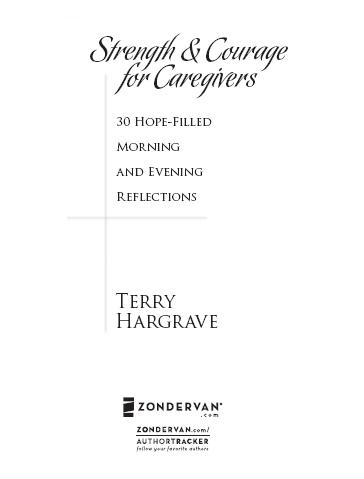
ZONDERVAN
Strength and Courage for Caregivers
Copyright 2008 by Terry Hargrave
All rights reserved under International and Pan-American Copyright Conventions. By payment of the required fees, you have been granted the non-exclusive, non-transferable right to access and read the text of this e-book on-screen. No part of this text may be reproduced, transmitted, down-loaded, decompiled, reverse engineered, or stored in or introduced into any information storage and retrieval system, in any form or by any means, whether electronic or mechanical, now known or hereinafter invented, without the express written permission of Zondervan.
ePub Edition January 2009 ISBN: 978-0-310-29667-6
Requests for information should be addressed to:
Zondervan, Grand Rapids, Michigan 49530
Library of Congress Cataloging-in-Publication Data
Hargrave, Terry D.
Strength and courage for caregivers : 30 hope-filled morning and evening reflections / Terry D. Hargrave.
p. cm.
ISBN-13: 978-0-310-27769-9
1. Caregivers--Prayers and devotions. I. Title.
BV4910.9.H37 2007
242'.4--dc22 2007045566
All Scripture quotations, unless otherwise indicated, are taken from the Holy Bible:New International Version. NIV. Copyright 1973, 1978, 1984 by International Bible Society. Used by permission of Zondervan. All rights reserved.
All rights reserved. No part of this publication may be reproduced, stored in a retrieval system, or transmitted in any form or by any means electronic, mechanical, photocopy, recording, or any other except for brief quotations in printed reviews, without the prior permission of the publisher.
08 09 10 11 12 13 14 15  26 25 24 23 22 21 20 19 18 17 16 15 14 13 12 11 10 9 8 7 6 5 4 3 2 1
26 25 24 23 22 21 20 19 18 17 16 15 14 13 12 11 10 9 8 7 6 5 4 3 2 1
Contents
I dont know which is worse having a terminal disease or watching those you love have a terminal disease. I have a terminal disease. It is called amyotrophic lateral sclerosis (ALS), or Lou Gehrigs disease. ALS is a degenerative, incurable, and terminal disease. The average life span for people with ALS is two to five years. I am fortunate. I have had the disease for seven years and have a rare, slow-growing form of the disease. As Ive watched my wife, children, and grandchildren deal with this disease, I am convinced that it is more difficult to watch someone you love deal with a terminal disease than to actually deal with the disease yourself.
Being a caregiver is not easy and it is a never-ending task. You are called on to be there 24/7. Recently, I wrote a book of prayers and promises for those who are terminally ill. It is a book out of my own journey in dealing with this disease. It speaks to the fears and struggles of those who know they are going to die. And it offers hope in the midst of the darkness. I am so grateful that Terry Hargrave has written a book for caregivers. Caregivers tend to get overlooked when facing a serious illness. You will find his book to be honest, funny, and thought-provoking. Most of all, you will find it to be encouraging.
Every caregiver ought to read this book. Whether you are the primary caregiver or part of a larger circle of people who help, this is the book for you. I would also recommend that the persons being cared for read this book as well. It will give them insights into the struggles and challenges faced by those who help them every day. Dealing with a terminal disease is no easy task. And being a caregiver especially the primary caregiver is no easy task either.
One of the challenges of being a caregiver is that you really dont have much time for yourself. The morning prayers and evening reflections in this book are short and to the point. This is especially good for those who are ill and for those who care for them.
Ed Dobson, author of Prayers and Promises
When Facing a Life-Threatening Illness
There are some forty million of us out there currently, and we are a growing group. We are the group that provides some type of care to a family member, friend, neighbor, or loved one. As caregivers, we have a special place in Gods heart as we learn the practice of attending to others needs in a loving and unselfish manner. In my opinion, few things in life shape us as people and make the fruit of the Spirit come to life more than the consistency of caregiving. But it is not an easy job. As caregivers, we need support, respite, and daily encouragement.
The purpose of Strength and Courage for Caregivers is to give you some of that support, respite, and encouragement. Each day for thirty days, you will read a Morning Prayer and an Evening Reflection, which are intended to help you as a caregiver do what I consider to be the most essential elements in the caregiving job, namely, to embrace and accept the job as caregiver, learn the lessons about how to give care, and aspire to the character of Christ. Although each reflection relates to one of these three elements, they are interspersed throughout the book to give a balanced reading.
As you will read in these pages, my knowledge of caregiving comes from directing a personal care home and caring for my mother-in-law, Genevieve, with my wife, Sharon. Caregiving taught me who I was and how I could become a more godly man. As you read each morning and evening reflection, I hope and pray that they will direct you to a more fulfilling relationship with God, a more profound sense of the important role you fulfill, and an awareness of how God regards you, a caregiver, as utterly special and wonderful.
Consider it pure joy, my brothers, whenever you face trials of manykinds, because you know that the testing of your faith developsperseverance. Perseverance must finish its work so that you may bemature and complete, not lacking anything.
JAMES 1:2 4
Every caregiver, no matter how patient, loving, and caring, eventually comes to the end of his or her rope. At those times, you want to grab hold of the one you care for and bark, Just do as I say! With your other hand, you want to shake a fist at God and shout, Why are you doing this to me?
For me, one of these days came when I received a call from the retirement facility where my mother-in-law, Genevieve, lived. We think shes had a stroke, they reported.
I went to Genevieves apartment and found her disoriented, with slurred speech and one side of her body partially paralyzed. I took her to the emergency room because I too was convinced she had had a stroke. When the neurologist was called in, she also suspected we would find brain damage, as she ordered blood tests and an MRI. My wife, Sharon, and I comforted her mother as we calmly talked about what this new level of caregiving would mean for our family and our lives.
Then the neurologist came back to the room with a sheepish grin on her face. She pointed to the sheet containing the lab results and said, We were wrong. She didnt have a stroke; shes drunk.
As her words sank in, I began to realize that all of my patient and loving concern for my mother-in-law had been a waste. She had somehow fallen back into the alcoholism that had dogged her for most of her adult life. How did she get ahold of alcohol? I wondered. Doesnt she know how dangerous it is for someone in her fragile condition to drink? Doesnt she know that drinking will complicate her suspected Alzheimers disease? Doesnt she realize the sacrifices Ive made to care for her? Doesnt she appreciate anything Ive done? Doesnt she realize how much her drinking insults me?
Next page
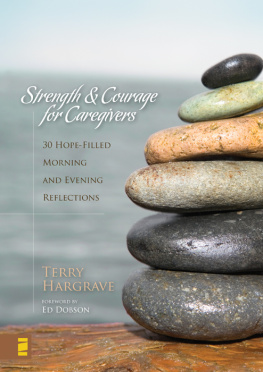
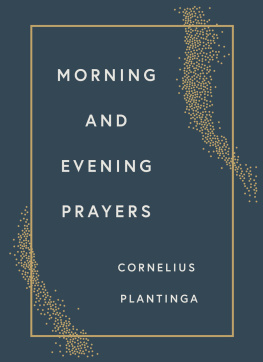


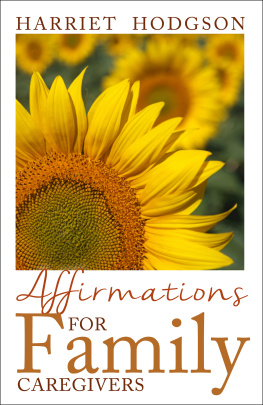
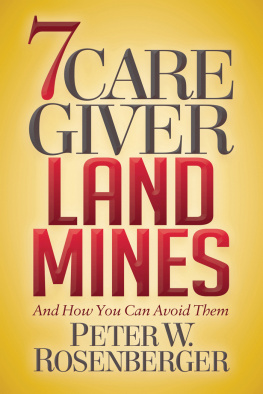

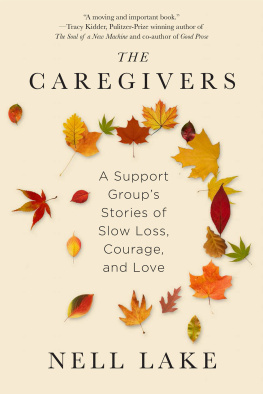
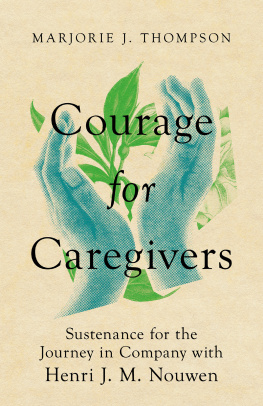

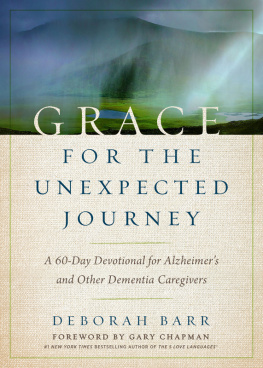

 26 25 24 23 22 21 20 19 18 17 16 15 14 13 12 11 10 9 8 7 6 5 4 3 2 1
26 25 24 23 22 21 20 19 18 17 16 15 14 13 12 11 10 9 8 7 6 5 4 3 2 1